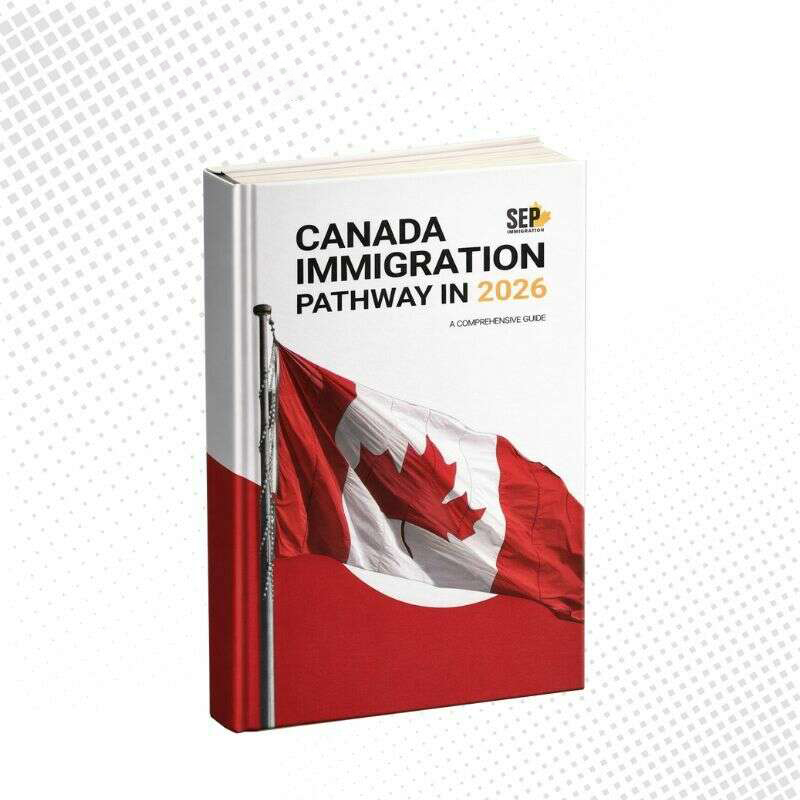
Table of Contents
ToggleWhat Is a Labour Market Impact Assessment (LMIA)?
A Labour Market Impact Assessment (LMIA) is a crucial document that Canadian employers need to obtain before hiring foreign workers. The LMIA ensures that hiring foreign workers won’t negatively impact the Canadian labor market. For a positive LMIA, the employer must demonstrate that there are no qualified Canadian citizens or permanent residents available for the job. A positive LMIA is sometimes called a confirmation letter.
Employers must apply for the LMIA, and once granted, the foreign worker can apply for a work permit. To apply for a work permit, the foreign worker will need several documents: a job offer letter, a contract, a copy of the LMIA, and the LMIA number.
An LMIA is particularly important in industries where skilled workers are scarce. The process ensures that local talent is prioritized but still allows foreign workers to fill gaps in the market. Employment and Social Development Canada (ESDC) manages this process, balancing the needs of employers and the protection of domestic workers.
Who Can Apply for an LMIA in Canada?
Canadian employers who want to hire a temporary foreign worker must apply for an LMIA and make sure they meet the requirements. Common scenarios where employers want to apply for an LMIA are:
- High-Wage Jobs: Positions that offer wages above the median hourly wage in the province or territory where the job is located.
- Low-Wage Jobs: Positions offering wages below the median hourly wage. These typically include roles in sectors with labor shortages, such as hospitality and retail.
- Agricultural Workers: Employers in agriculture who need seasonal or year-round workers for activities directly related to farming, such as planting or harvesting.
- Caregiver Positions: Employers looking to hire caregivers for children, seniors, or persons with medical needs.
To qualify for applying for an LMIA, employers must own a legitimate business that can showcase their financial ability to hire foreign workers
How Much Does an Labour Market Impact Assessment (LMIA) Cost?
The cost for submitting an LMIA application is $1,000 per position. This fee must be paid for each job position the employer intends to fill with a foreign worker. For example, if an employer is hiring for two positions, the total cost would be $2,000. The fee covers the application processing and is non-refundable, even if the application is denied or withdrawn.
This processing fee can be paid using various methods, such as Visa, MasterCard, American Express, certified cheques, money orders, and bank drafts.
Additionally, an online banking option is available through a pilot project for employers submitting LMIA applications for six or more positions. The fee cannot be recovered from the foreign worker or deducted from their wages, ensuring that the worker is not financially burdened by the process.
Employers should be aware that while the fee applies to each LMIA application, there are specific exemptions. For instance, employers hiring foreign caregivers for medical assistance or childcare under certain income thresholds may be exempt from the fee.

How Long Is a LMIA Valid for?
Typically, an LMIA is valid for 18 months from the date of issue. This allows both the employer and the foreign worker enough time to complete the necessary steps for the hiring process and for the foreign worker to apply for their work permit. The extended validity ensures there’s no rush, and employers can plan accordingly.
In some cases, though, the LMIA may be issued for a shorter duration. This usually happens when the job in question is for a short-term project, such as seasonal or temporary work.
Employers must pay attention to the validity period because if it expires before the foreign worker applies for their work permit, the employer will need to restart the LMIA process and pay the application fee again.
Starting in September 2024, new tightening measures for the low-wage stream will reduce the maximum duration of employment from 2 years to 1 year. This adjustment, along with a cap on low-wage positions, highlights the government’s efforts to ensure Canadian workers are prioritized for jobs, especially in areas with higher unemployment rates.
High and Low Wage Positions in Canada
The distinction between these two positions is super important in the LMIA process. Put in simple terms, high wage refers to an above-median salary and low wage to a below-median salary.
High-Wage Positions
For these positions, the applicant must provide a transition plan. The plan must outline how the employer is going to lower the reliance on foreign workers over a set period of time. To do this, the employer must try and hire/train Canadians, improve the working conditions and hire local talent in the future.
Low-Wage Positions
The lower-wage positions are more strict. The Canadian government sets a cap on how many foreign worker a company can hire. In most sectors, the cap is 10%. This means the company cannot hire more than 10% of its workforce from TFWs.
The maximum time that you can remained hired in a low-wage position is only 1 year but in construction and health, this limit is reduced.
Can I Apply for LMIA by Myself?
No, foreign workers cannot apply for an LMIA on their own. Only the employer can submit an LMIA application. This process is employer-driven, and the foreign worker relies on the employer to apply for and obtain the LMIA.
However, there are certain situations where an LMIA is not required. These are known as LMIA-exempt work permits. These exemptions are typically granted under international agreements or for workers who qualify under specific programs like the International Mobility Program.
LMIA exemptions allow employers to hire foreign workers without going through the LMIA process, but these situations are relatively rare and highly specific to certain industries or agreements.
If an LMIA is required, employers must meet several conditions, such as advertising the job to Canadians first and proving they could not find a suitable Canadian worker. The foreign worker, on the other hand, must ensure they have the necessary documentation, like a job offer letter and contract, to apply for a work permit once the LMIA is approved.

How Long Does a LMIA Approval Take?
LMIA processing times can vary greatly depending on the type of job and the stream under which the application is submitted. For example, applications under the Global Talent Stream, which aims to attract highly skilled workers, are processed in approximately 8 business days. On the other hand, applications for low-wage positions can take up to 57 business days to process.
For high-wage streams, the processing time is around 52 business days. Permanent residency streams typically take even longer, with an average processing time of 85 business days.
It’s essential for employers to plan ahead and account for these timelines when submitting LMIA applications, particularly for low-wage streams. These positions are subject to additional scrutiny and regulations, especially in regions with higher unemployment rates. The government wants to ensure that Canadians are prioritized for these roles.

What Documents Are Required for LMIA?
Employers need to submit several important documents when applying for an LMIA. These include:
- Proof of recruitment efforts: Evidence showing the employer has tried to hire Canadian citizens or permanent residents before seeking foreign workers.
- Business legitimacy documents: Proof that the company is actively operating in Canada.
- Signed employment agreement: An agreement outlining wages, working conditions, and other employment terms.
- Compliance with regulations: Confirmation that no recruitment fees have been passed on to the foreign worker.
- Industry-specific documents: Additional documents may be required, such as:
- Union consultation (if applicable)
- Health and safety measures for the job
- Any other relevant industry-specific documentation.
Labour Market Impact Assessment Exemptions Simplified
LMIA exemptions let certain foreign workers skip the standard requirement for employers to prove no Canadian can fill a job. These exemptions are under the International Mobility Program (IMP), which supports Canadian interests or international agreements.
Common exemptions include those covered by trade deals like CUSMA or workers in intra-company transfers.
Other exemptions include the Francophone Mobility Program, encouraging French-speaking workers outside Quebec, and roles that bring significant benefits to Canada. This could include self-employed individuals in cultural fields or academics like researchers. Charitable and religious workers may also qualify.
Even with an LMIA exemption, workers still need a work permit, ensuring compliance with Canadian labor standards. These exemptions simplify hiring for employers, helping attract specialized talent and promoting cultural diversity in Canada.
Dealing with the complexities of the LMIA process? SEP Immigration is ready to help. Our experienced team guides both employers and workers through each step, making it straightforward and manageable. We handle the finer details, so you can focus on your objectives without the added stress. Get in touch with us today to get started with confidence.
FAQs
Employers can submit as many LMIA applications as needed. However, starting in September 2024, there will be a cap on the number of low-wage positions, reducing the cap to 10%.
Yes, if you’ve applied to extend your work permit before it expired, you are on “Maintained Status” and can continue working under the same conditions.
No, IELTS is not required for LMIA-based work permits. Employers must verify that the foreign worker has the necessary language skills for the job.
A job offer supported by an LMIA can provide either 50 or 200 points in the Express Entry system, depending on the job position.
Yes, once an employer obtains a positive LMIA, the foreign worker can apply for a work permit to work in Canada.




